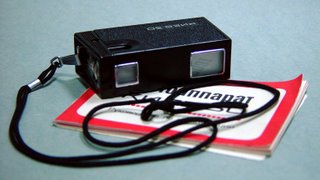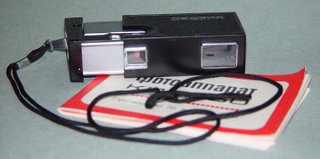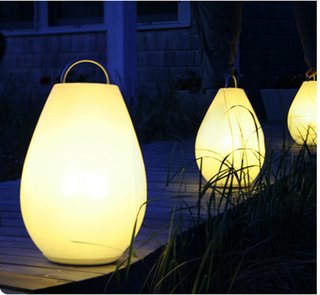
Flickr :: Sorry, me too.








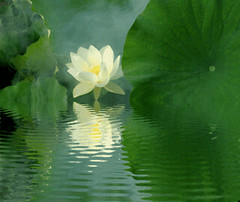










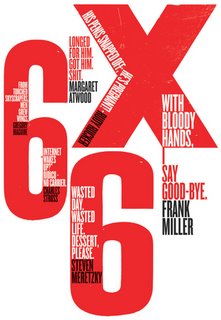














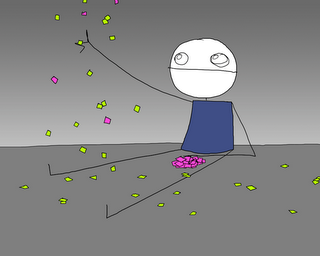





The notion tianrenheyi has pervaded the Chinese philosophy since the Spring and Autumn Period. The definition of the two concepts of "heaven" and "man" varies with different philosophers. And their relationship has been explained by different theories in traditional Chinese philosophy. For example, Xunzi required that a "distinction be made between heaven and man". Zhuangzi theorized that "those who are ignorant of heaven know nothing about man". Furthermore, the question of "relations between heaven and man" was often found in the discussion about the relation between "nature" and the "Confucian ethical code." Nevertheless, the mainstream of traditional Chinese philosophy has taken as its main task the demonstration or explanation of how "heaven is integrated with man."
The Confucian philosopher Zhou Dunyi noted explicitly that "A saint shares virtue with heaven and earth", and "a saint aspires to heaven". Zhang Zai stated in his West Inscription: "That which exists between heaven and earth is my intrinsic being; that which commands heaven and earth is my character." Zhu Xi held that "Heaven is man, and man is heaven. Since this man is born, heaven rests in him." and that "A saint . . . is integrated with heaven."
Such saints do exist, one of who is Confucius.
Confucius has always been called a saint (圣), furthermore, he has been perceived as a God-like figure (神). In China, there are thousands of temples in which Confucius was worshiped. Zigong said: “Confucius is the sun and moon which no one can climb beyond.” (19.24) and “The Master cannot be matched just as a ladder cannot be used to climb the sky.” (19.25) Confucius is regarded as such not only because of his knowledge and virtues, but also because people have high respect for him and are willing to follow him. This is an interesting notion: a saint or God is a saint or God is because people believe so. Zigong said: “He gave them a place and they took a stand, He led them forward and they followed, He brought peace and they flocked to him, He aroused them and they achieved harmony. In life he was glorious, And in death he was mourned.” (19.25) Confucius is a saint/ God-like human because people think of him as such.
In this sense, Confucius could be said to have achieved tianrenheyi. And by reading the Analects, through Confucius’ teaching and philosophical expressions, we could learn more about the subject.
The first is the relationship between Heaven, Man, and Li.
One definition of Li is rites, which are performed to worship God and spirits. So Li could be understood as a bridge that connects man to heaven. However, there’s more to it than this definition. Li, as far as I’m concerned, is based on the understanding of tiandao, the Way of Heaven.
Li is concerned with relationships, between person and person or between person and God/ spirits. Confucius contends that Li is in harmony with the universal order, that is, the tiandao, or the Way of Heaven. Only in this way can Li perform its function as a way to establish harmony in the society. The Analects said, "Among the functions of propriety (li) the most valuable is that it established harmony. The excellence of the ways of ancient sage-kings consists of this. It is the guiding principle of all things great and small." Since Li is a product of the sages who knew the Way of Heaven, and everyone can become a sage if he/she chooses to, the Confucian philosophy denotes possibility of human’s coexist with the Heaven and Earth, moreover, human’s integration with the Heaven.
The notion of the integration between Heaven and Man has four profound meanings.
The first is Confucius’ conception of living in the present, living in reality.
Confucian philosophy is about the present, not the past or the future. When “Zilu asked how to serve the spirits and the gods. The Master replied, ‘Not yet being able to serve other people, how would you be able to serve the spirits?’ Zilu said, ‘May I ask about death?’ The Master replied, ‘Not yet understanding life, how could you understand death?’” (11.12) Confucius holds that only after people conduct themselves properly and follow the virtues can they serve the spirits and the gods.
One of the virtues of tian is that it’s always changing and developing. Confucius once stood on the riverbank and said: "Isn't life's passing just like this, never ceasing day or night!" (9.17) If you interpret this sentence as expressing depression and sorrow, then Confucius would not be much different from ordinary people. However, when Confucius observes the unceasing passing of time and tide, he said this to remind people that they should seize the day, and that in order to be one with tian, people need to have tian’s virtue of continuously progressing, therefore, they should be constantly cultivating themselves. To Confucius, what matters is the process, not the result, so the amount of progress people are making each time is not as important as the fact that they are making an effort. He said, "As in piling up earth to erect a mountain, if, only one basketful short of completion, I stop, I have stopped. As in filling a ditch to level the ground, if, having dumped in only one basketful, I continue, I am progressing." (9.19)
Apart from living in the present, Tianrenheyi also express a sense of living here, the real world in which everyone and everything is connected.
The Master said, "I think I will leave off speaking." "If you do not speak," Zigong replied, "how will we your followers find the proper way?" The Master responded, "Does tian speak? And yet the four seasons turn and the myriad things are born and grow within it. Does tian speak?" (17.19) When he reflects on the speechlessness of Heaven and the simultaneous marvelous workings of Heaven in the sun, the moon, and the four seasons, he points out that nature is sacred, not because it is sanctified by a transcendental God but because it inspires a sense of order, harmony, and purpose. So though Heaven does not speak to us literally, we can recognize its generative power and come to be aware of the objective order in the universe by Heaven's working. The way of Heaven embodies a whole cosmic pattern, in which everything is related to everything else, and thus create order and harmony.
As stated above, Confucius has very high regards for relatedness. Man, in Confucian ethics is not an impartial individual who is independent from the details of personal life. Instead, he is one who lives in various concrete social relations. The Confucian self is not a concept of an independent entity. In the process of self-development, the key is to relating to one's social commitment, rather than isolating oneself from others and society. The society that Confucians aim to build is not one that consists of a group of self-interested and self-centered persons, but one composed of virtuous individuals who live in harmonious relationships with other members of a community. The Western atomistic perception of the Man is never a part of the Confucian philosophy and the Man is never understood as an independent being distinct from all others. In the eyes of Confucians, Man’s relationship with the outside world, especially with other persons is as important, if not more, as the Man himself.
That’s why Confucius advocates a sense of broadmindedness. He said: "How great indeed was Yao as a ruler! How majestic! Only tian is truly great, and only Yao took it as his model. How expansive was he - the people could not find the words adequate to praise him. How majestic was he in his accomplishments, and how brilliant was he in his cultural achievements." (8.19) As you know, Yao established the system of shanrang, in which the next emperor is chosen among all citizens by looking for the best virtues and abilities, not chosen among relatives, and that the preceding emperor would give the throne to him peacefully and willingly. Confucius greatly praised Yao for taking tian as his model. Tian is a perfect example of broadmindedness for it is so grand that it contains everything. As for a person, in order to be one with the grand tian, he has to open his heart to tolerance.
In addition, the notion of tianrenheyi is a recognition of Man’s potentials. The Confucian understanding of the Man is that Man is not only a li-follower, but also a li-maker. Man is endowed with the ability to seek the Way of Heaven. It is known that one of the most important insights of Confucianism is its affirmation of the moral subject. Confucius affirms that it is possible for everyone to develop his potentiality and to become a sage, for a sage is one who has achieved the ultimate in the development of his human potential, and this achievement is within the reach of every human being. By being sincere, being true to one's own heart-mind, everyone is able to reach the same objective. It is through the infinite heart-mind that the subject can be in a position to be one with Heaven and Earth.
In conclusion, tianrenheyi is not an ideal, but a state in which the Man is in harmony with the surroundings. It is attained by following the Way of the Heaven, by being broadminded, and by constantly cultivating oneself.

From the Great Learning to the Analects,
From Wittgenstein to Confucius
-- A Comparative Study of ZHENGMING
Professor Aimes was wearing a new tie last Tuesday. I immediately recognized it as a souvenir from Peking University as the patterns on the tie are the Peking University logo. Just as a logo identifies a tie, a name can be the most direct and immediate identification of a person.
A name is not just something to call a person by. It reveals how one is perceived by others and how one correlates to the surroundings. It includes one’s relationships with other people and one’s standing in this society. For example, when you call someone “Doctor”, “Professor” or “Pastor”, you are relating to this person by his profession and social status. While talking, these implements come naturally; you don’t have to think about their social status before you speak. But think about it, it actually has a significant meaning. It does not only state a fact (about their identity), but only shows your attitudes toward this person and more importantly, your relationship / correlation with this person. This way of correlation is why MING, names, and ZHENGMING are important in the Confucian philosophy.
Ever since Han Dynasty, there had been controversies over the meaning of ZHENGMING. Some scholars believe it means the correctness of words, some others believe it means the appropriateness of the names used in titles or referred to as a social status.
In the Analects, Confucius said: “A cornered vessel without corners. – A strange cornered vessel! A strange cornered vessel!”1 A Gu which doesn’t look like a Gu only has its name, but not the reality, so it’s a folly. Therefore, to Confucius, it is no longer suitable to call that a Gu. Bearing in mind Confucius’ attitude toward this misuse of words while thinking about the misuse of one’s title, you will have some idea about what ZHENGMING means in the Confucian philosophy.
First of all, a Gu is, in fact, still a Gu, even if it’s strange. So Confucius is not saying it is wrong to call it a Gu, but rather it is inappropriate. The same applies to persons. For instance, you are correct to call a doctor a doctor even if he is incompetent or knows nothing about his area, but it would be truly ironic. In that case, Confucius thinks that since he doesn’t conduct himself in accordance with his name, it is inappropriate to call him a doctor.
Gu is only used as a metaphor in explaining Confucius attitude toward this kind of inappropriate use of words. We should know that ZHENGMING is not just any kind of inappropriate use of words, but only limited to the misuse of words relating to the ancient system of piety or the titles and names. The common inappropriate use of words is a problem of language proficiency, while the inappropriate use of words in terms of the piety system or the titles and names is a problem related to moral and politics. One must be able to differentiate the two. The latter is what Confucius is concerned about.
Compared to the common mistakes people make with the words, the misuse of words in a moral or political sense is more abstract as there is no grammar book or a dictionary dealing with these kind of problems. You have no concrete standards to refer to. Hence, you cannot say a word or name is wrong, all you can say is it may not be appropriate in relation to the context. A word, or a name does not stand alone in this world. In order to understand a word or a name, you can only doing so by observing how it correlates to the surrounding world.
Wittgenstein expressed similar ideas in his philosophy. He believes that you cannot give a simple definition to a word. You can only describe something by describing what context it is in or its usage. “What can be shown, cannot be said.” (4.1212) “To give the essence of a proposition means to give the essence of all description, and thus the essence of the world.” (5.4711)2 And, "If we had to name anything which is the life of the sign, we should have to say that it was its use."3 The idea of correlation is very similar to that expressed in the Confucian philosophy.
In his Philosophical Investigations, Wittgenstein further argues that “Our investigation is a grammatical one. Such an investigation sheds light on our problem by clearing misunderstandings away. Misunderstandings concerning the use of words, caused, among other things, by certain analogies between the forms of expression in different regions of language.” 4 Here he affirms that one of the causes of misunderstanding concerning the use of words is the forms of expression. This idea is related to Confucius’ idea about the “inappropriate use of words”. For Confucius, it is the inappropriateness in a context, in a society of piety system that he concerns about. For Wittgenstein, it is also about the forms of expression, the choice of word and language. I cannot say which one has a broader meaning, but I think their essence is the same. That is, in many cases, if not all, inappropriate names, or inappropriate use of words prevent us from seeing the world as it truly is, or seeing people as they truly are.
As stated in the beginning of the essay, you cannot say a name is right or wrong, all you can say is it is appropriate or not in the context. Wittgenstein, again, has an interesting passage about a similar idea: “Rules of life are dressed up in pictures. And these pictures can only serve to describe what we are to do, not justify it. Because they could provide a justification only if they held good in other respects as well. I can say: "Thank these bees for their honey as though they were kind people who have prepared it for you"; that is intelligible and describes how I should like you to conduct yourself. But I cannot say: "Thank them because, look, how kind they are!"--since the next moment they may sting you.”5 Your description of a bee may largely depend on whether you have been stung or not. Similarly, your description of a person largely depend on your relationship with him/ her and your mutual understanding. The reason why you call your mother “mom” is, first of all, she in fact is your mom; secondly, she is conducting a mother’s duty (that’s why a good stepmother could hear children call her “mom”, but a bad one can’t); thirdly, she is relating you as her child. The name “mom” seems simple enough, but as you see it consisted of one’s identity, one’s way of conducting themselves and one’s correlation to others. Both Wittgenstein and Confucius believe that the importance of words lies in showing, not telling.
On top of that, I think ZHENGMING is similar to the concept of GEWU in the Great Learning, which is about the cultivation of oneself, the regulation of the family, the well-ordering of the state, and the making the whole kingdom peaceful and happy. The order of the objects of GE is as person, family, state and kingdom. The order is stable, One cannot GE a whole kingdom without GE oneself. It shows the priorities and the stages of reaching “the ultimate goodness”. So GEWU and ZHENGMING follow similar logic; the difference is that ZHENGMING is mainly about ranks, social status, while GEWU is about person, family, state and kingdom. The former is viewing from a moral perspective, while the latter is from a practical perspective. Nevertheless, they share the same spirit of conducting appropriately.
ZHENGMING is the key of Confucius’ political idea. When Zilu asked what the first priority should be to administrate a state, Confucius replied: “Without question it would be to insure that names are used properly”6. And when “Duke Ching of Ch'i asked Confucius about government. Confucius answered, 'Let the ruler be a ruler, the subject a subject, the father a father, the son a son.”7 The reason why Confucius says this is because when everyone is in their appropriate status, doing job that suits one’s name, using objects that suits one’s title, then order would be established and a peaceful society would maintain. But if a Gu is not a Gu, then a country is not a country. In Confucian philosophy, ZHENGMING is an essential condition in all politics.
Finally, we come to the translation of ZHENGMING. If we simply translate it as the “rectification of names”, then we are isolating the names by cutting off its connection to the surroundings. However, this is the last thing Confucius wants to do. In his philosophy and political ideas, ZHENGMING is closely related to one’s social status, one’s surroundings, and one’s conducts.
According to my understanding, MING, name, in the Analects, is not only about the title, but also related to the social status and rights a person has accordingly. You can only grasp the meaning of the name by observing how it correlates to the world surrounding it. Therefore, a better translation of ZHENGMING might be the appropriateness of the name or making the name appropriate. Unlike the GEWU in the Great Learning, or the “misunderstanding of words” in Wittgenstein’s philosophy, ZHENGMING in Confucian philosophy is more from a political and moral sense.
1 Legge, James. Confucian Analects. City: Kessinger Publishing, 2004. VI.23)
2 Wittgenstein, Ludwig. Tractatus Logico-Philosophicus, translated by D.F. Pears and B.F. McGuinness. Routledge and Kegan Paul, London 1961
3 Wittgenstein, Ludwig. Blue and Brown Books. Cambridge: Blackwell Publishers, 2002.
4 Wittgenstein, Ludwig. Philosophical Investigations, translated by G.E.M. Anscombe. Basil Blackwell, Oxford 1963
5 Wittgenstein, Ludwig. Culture and Value, translated by Peter Winch. Basil Blackwell, Oxford 1980
6 Ames, Roger and Henry Rosemont. The Analects Of Confucius. New York: Ballantine Books/Ballantine Pub. Group, 1999. II.7
7 Confucius and D. Lau. The Analects (Lun Yü). New York: Penguin Books, 1979. XII.11)
